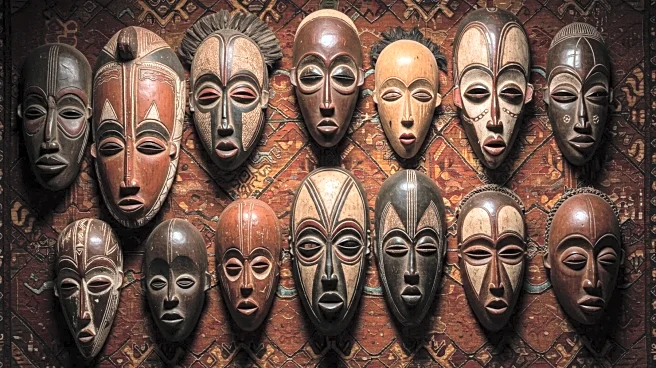What is the story about?
What's Happening?
Several African nations have emerged as some of the fastest-growing trading economies globally, according to the DHL Trade Atlas 2025. Countries such as the Democratic Republic of the Congo, Zimbabwe, Liberia, and Côte d’Ivoire have recorded double-digit trade growth from 2019 to 2024. This growth is driven by increased global demand for minerals, agricultural commodities, and shipping services. Despite the dominance of major economies like China and the United States in overall trade volumes, these African nations are leveraging their natural resources, improved logistics, and regional integration to expand their global trade footprint.
Why It's Important?
The rapid trade growth in African nations signifies a shift in global supply chains, positioning the continent as a dynamic force in international trade. Africa's role as a supplier of critical minerals essential for electric vehicles and renewable technologies highlights its importance in the green energy transition. Additionally, Africa's contributions to global food systems are vital for food security in regions such as Europe, Asia, and the Middle East. However, the reliance on raw material exports exposes these nations to commodity price volatility, and high transport and logistics costs remain a challenge.
What's Next?
Sub-Saharan Africa's trade is projected to grow at a compound annual growth rate of 5.3 percent between 2024 and 2029, indicating continued momentum in reshaping global supply chains. The continent's growing role in digital trade offers new opportunities for African firms to access global markets without heavy infrastructure costs. However, climate shocks and prolonged droughts pose risks to agricultural outputs, affecting food security and economic stability.
Beyond the Headlines
The growth of African economies in global trade reflects broader shifts in economic power and the potential for increased influence in international policy discussions. As these nations continue to develop their trade capabilities, they may also face ethical and environmental challenges related to resource extraction and sustainability.
















